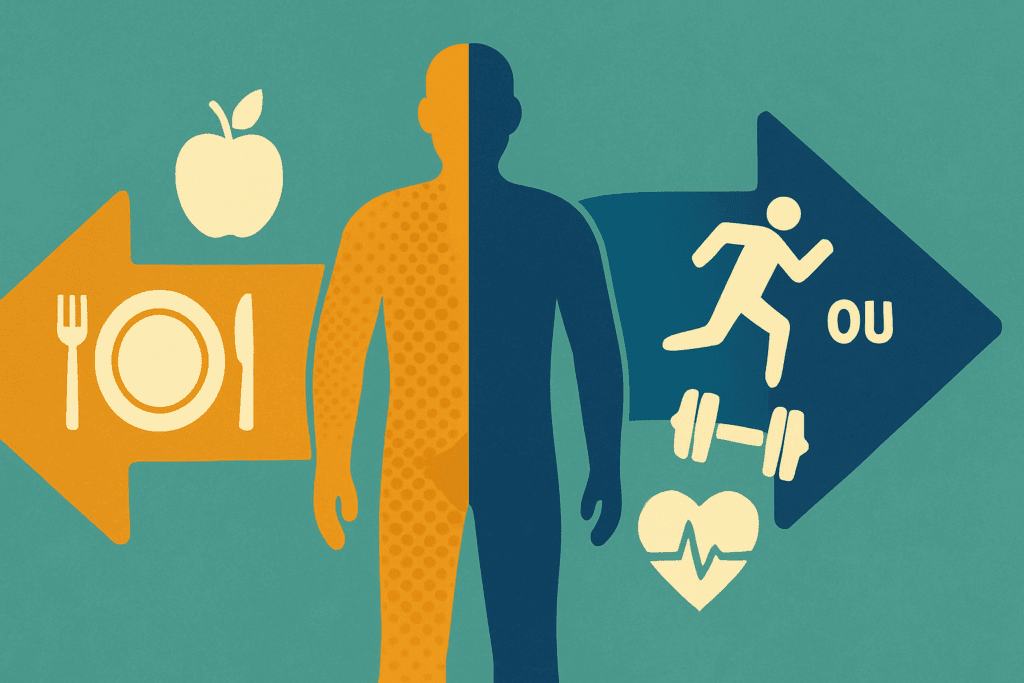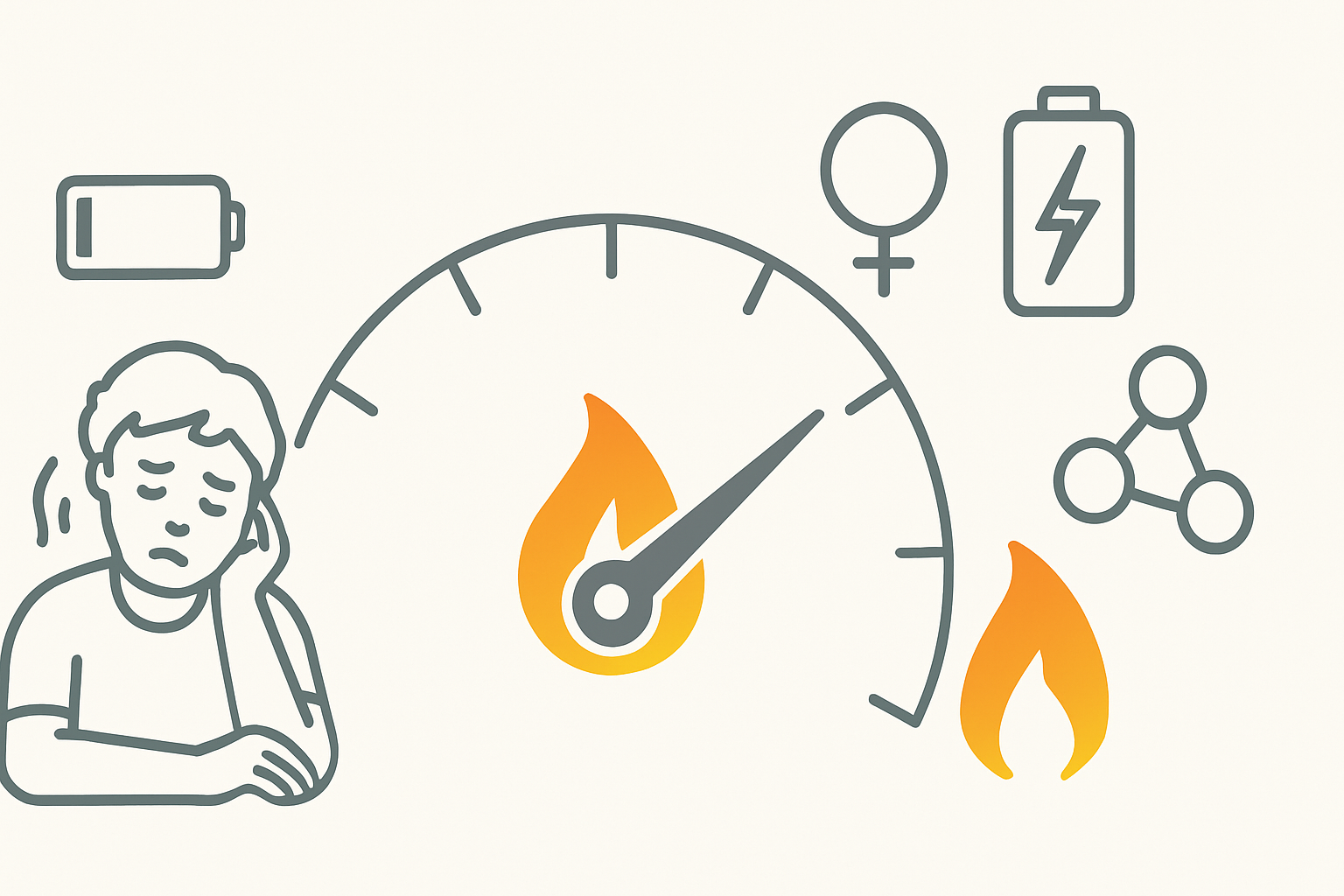Losing weight is a deeply personal journey, influenced by physiology, motivation, health status, and lifestyle. Amid countless diet trends and weight loss programs, many people searching for quick results often ask, “Is losing 3 pounds a week healthy?” The answer is more nuanced than a simple yes or no. Health experts emphasize that safe weight loss requires an understanding of how the body works, what constitutes realistic goals, and which strategies align with long-term well-being. Shedding pounds too quickly can carry risks, while the right approach to sustainable weight loss can transform a person’s life. This article explores the science, expert insights, and best practices behind healthy weight loss and what to know if you’re trying to lose 3 pounds in a week.
You may also like: Expert-Backed Weight Loss Tips for a Healthier Lifestyle: What You Need to Know for Long-Term Weight Control and Wellness

Understanding the Fundamentals of Weight Loss
At its core, weight loss occurs when the body expends more energy than it consumes, resulting in a caloric deficit. This fundamental concept drives most diet and exercise recommendations. However, not all weight loss is equal. Rapid loss of weight may often come from water or lean muscle mass rather than fat, which can lead to undesirable health consequences. Experts stress the importance of distinguishing between short-term reductions on the scale and genuine fat loss that supports metabolic health.
When people inquire, “Is losing 3 pounds a week healthy?” it’s important to consider body composition changes, not just the number on the scale. Losing fat while maintaining muscle mass leads to better metabolic outcomes and helps preserve physical function. But doing this safely usually requires a well-structured, nutritionally sound plan. While losing 1 to 2 pounds per week is widely recognized as a safe and sustainable rate, losing 3 pounds a week is not necessarily harmful—if done correctly, under supervision, and based on an individual’s starting point and health status.
The Importance of Individualized Weight Loss Goals
Weight loss is not a one-size-fits-all process. What is healthy for one person may be unsafe or unrealistic for another. Factors such as age, sex, baseline weight, muscle mass, hormonal status, and medical conditions all influence how the body responds to a calorie deficit. For example, someone with obesity and a higher body mass index (BMI) may be able to lose 3 pounds in a week more safely than someone who is already close to their ideal body weight.
Healthcare professionals evaluate safe weight loss by considering the percentage of total body weight lost over time. Generally, losing 1% of body weight per week is seen as a safe guideline. For a person weighing 300 pounds, this might mean that losing 3 pounds in a week is within a healthy range. However, for someone who weighs 130 pounds, that same 3-pound loss would be more than 2% of their total body weight, which could potentially lead to muscle loss, fatigue, or nutritional deficiencies if not managed carefully.
The question “Is losing 3 pounds a week healthy?” must therefore be answered in context. It depends on a range of variables that should be considered carefully before setting a weekly weight loss goal. Consultation with a registered dietitian or physician is often essential for crafting a personalized and medically appropriate plan.

Metabolic Adaptation and the Risk of Losing Weight Too Fast
One reason why losing weight too quickly can be problematic is due to a phenomenon known as metabolic adaptation. When the body senses a rapid drop in caloric intake, it can slow down its metabolic rate in an attempt to conserve energy. This is a built-in survival mechanism that helped early humans during times of famine but can be counterproductive in the context of modern weight loss.
Metabolic adaptation may lead to fatigue, increased hunger, hormonal imbalance, and eventually a plateau in weight loss. In some cases, it can even result in weight regain once normal eating patterns resume. For this reason, experts often caution against extreme calorie restriction or overexercising as a strategy to lose 3 pounds in a week.
While the idea of dropping multiple pounds quickly may seem appealing, it is often more beneficial to focus on maintaining a moderate calorie deficit that supports fat loss without triggering the body’s protective mechanisms. A consistent, gradual approach usually results in better long-term outcomes and helps preserve lean body mass, which is crucial for metabolic health.

Evaluating the Role of Exercise in Losing 3 Pounds a Week
Exercise plays a central role in healthy weight loss. Regular physical activity not only helps burn calories but also preserves lean muscle mass, boosts mood, and supports cardiovascular and metabolic health. For those wondering how to lose 3 pounds in a week, integrating exercise into a daily routine is often part of the solution—but not the entire answer.
Burning 3 pounds of fat equates to creating a deficit of approximately 10,500 calories over the course of a week, or 1,500 calories per day. Achieving this solely through exercise is extremely difficult and often unrealistic. For context, running a mile burns roughly 100 calories for the average person, meaning one would need to run 15 miles a day to achieve a 1,500-calorie deficit through exercise alone.
Therefore, sustainable weight loss involves a combined strategy of dietary modifications and physical activity. Resistance training is particularly valuable, as it helps preserve muscle mass during weight loss. Cardiovascular activities like walking, swimming, cycling, and running support fat burning, while flexibility and mobility exercises promote overall wellness and injury prevention. When exercise is paired with a balanced, nutrient-dense eating plan, the possibility of safely losing 3 pounds in a week becomes more feasible.

Nutrition Strategies for Sustainable Weight Loss
Nutrition is perhaps the most influential factor in determining whether a person can lose 3 pounds in a week safely. Fad diets that promise rapid weight loss often rely on severe calorie restriction or the elimination of entire food groups. While these approaches may produce quick results on the scale, they frequently compromise nutritional quality, leading to fatigue, muscle loss, or nutrient deficiencies.
A balanced approach to eating should include lean proteins, whole grains, fruits, vegetables, and healthy fats. These foods provide essential vitamins and minerals while promoting satiety and blood sugar stability. High-protein diets, in particular, have been shown to support muscle preservation during weight loss and may enhance metabolic rate due to the thermic effect of protein digestion.
Fiber-rich foods such as legumes, whole grains, and vegetables also play a key role. They slow digestion, reduce hunger, and improve gut health, all of which contribute to sustainable weight management. Hydration is another critical aspect, as mild dehydration can be mistaken for hunger and may negatively affect metabolic function.
When planning how to lose 3 pounds in a week, the goal should be to create a moderate calorie deficit through thoughtful food choices, portion control, and mindful eating practices—not extreme dieting. This ensures the body receives the nutrients it needs to function optimally while promoting fat loss over muscle loss.

The Psychological Impact of Rapid Weight Loss Goals
Setting ambitious goals like losing 3 pounds a week can have significant psychological implications. While some individuals find such targets motivating, others may become discouraged if they fail to meet them, leading to frustration, negative self-talk, or unhealthy eating behaviors. The pressure to meet aggressive weight loss timelines can contribute to a cycle of yo-yo dieting, where people repeatedly lose and regain weight.
Psychologists and health coaches often advocate for setting process-oriented goals rather than outcome-focused ones. This means focusing on behaviors—like exercising regularly, preparing meals at home, or reducing sugar intake—rather than obsessing over the scale. Cultivating a mindset that values progress over perfection fosters greater resilience and long-term success.
It’s also important to recognize that weight is not the sole measure of health. Improvements in energy levels, sleep quality, mental clarity, and physical fitness often occur before substantial weight loss is seen. Individuals aiming to lose 3 pounds in a week should take a holistic view of health and wellness, celebrating non-scale victories as part of the journey.
When Is Losing 3 Pounds a Week Considered Safe?
There are circumstances in which losing 3 pounds a week can be healthy, particularly when it occurs under the guidance of a healthcare provider. For individuals with a higher BMI or those who are at risk for obesity-related conditions such as type 2 diabetes, high blood pressure, or fatty liver disease, more aggressive weight loss may be warranted in the short term. In clinical settings, structured interventions that include dietary counseling, physical activity, and behavioral therapy have demonstrated success in helping patients safely lose weight at this rate.
Medical supervision is key in these cases, as it allows for monitoring of nutrient intake, hydration status, cardiovascular function, and overall well-being. Rapid weight loss should always be pursued with caution, especially in populations with comorbidities, the elderly, or those with eating disorders.
In contrast, for the average person without medical supervision, aiming to lose 3 pounds in a week should be approached carefully. It may be a reasonable short-term goal for a special occasion or milestone, but it should not become the standard. What matters more is consistency, sustainability, and adherence to healthful habits over time.

The Role of Sleep, Stress, and Lifestyle in Weight Loss
Often overlooked, factors like sleep quality, stress levels, and daily routines can significantly affect weight loss outcomes. Sleep deprivation alters hunger-regulating hormones such as ghrelin and leptin, increasing cravings and decreasing self-control. Chronic stress raises cortisol levels, which has been associated with abdominal fat storage and disrupted metabolic function.
Incorporating stress-reducing practices such as mindfulness, yoga, or deep breathing can positively influence weight loss efforts. Prioritizing 7 to 9 hours of quality sleep each night supports hormonal balance, muscle recovery, and cognitive function—all of which contribute to successful weight management.
Lifestyle habits like meal timing, alcohol intake, screen time, and physical activity patterns also play a role. People looking to understand how to lose 3 pounds in a week should assess not only their diet and exercise but also the broader context of their daily behaviors. A comprehensive approach that includes stress management, sleep hygiene, and behavioral consistency is essential for safe and effective weight loss.
Medical Conditions and Medications That Affect Weight Loss
Underlying health conditions and certain medications can influence how easily or safely a person can lose weight. Hypothyroidism, polycystic ovary syndrome (PCOS), insulin resistance, and mood disorders can all affect metabolism, appetite, and energy levels. Medications such as corticosteroids, antidepressants, and antipsychotics may cause weight gain or make weight loss more difficult.
For individuals with these conditions, attempting to lose 3 pounds in a week may require additional medical guidance and adjustments. Blood tests, medication reviews, and comprehensive treatment plans can help identify barriers and support a healthier, more personalized approach. It’s also important to avoid comparing one’s progress to others, as metabolic challenges can create a vastly different weight loss trajectory.
Working with healthcare providers, including registered dietitians, endocrinologists, or integrative medicine practitioners, ensures that health conditions are appropriately managed while pursuing weight loss goals. In these cases, success is often measured in improved lab values, symptom reduction, and functional health—not just pounds lost.
Why Sustainable Weight Loss Is More Important Than Speed
The appeal of fast results is understandable in a culture that values quick fixes. But sustainable weight loss is more than a momentary drop on the scale—it is about building habits that last a lifetime. Studies consistently show that people who lose weight gradually and steadily are more likely to keep it off in the long run compared to those who lose weight rapidly.
Sustainability comes from a focus on habit change, self-awareness, and balance. It means creating a lifestyle that supports well-being rather than one that requires constant restriction or deprivation. When someone asks, “Is losing 3 pounds a week healthy?” they are often seeking both immediate and lasting change. But true transformation comes not from intensity alone, but from consistency, patience, and resilience.
Choosing an approach rooted in evidence-based strategies, realistic expectations, and long-term thinking leads to better health outcomes. This includes regular physical activity, nutritious eating, positive relationships with food, and respect for the body’s natural rhythms.
What to Remember About Losing 3 Pounds a Week Safely
While the idea of rapid weight loss can be compelling, the key to lasting success lies in understanding your body, listening to expert advice, and adopting a holistic approach to health. Losing 3 pounds in a week can be safe for some individuals, especially when starting from a higher body weight or under professional supervision. But for many people, this rate of weight loss may be too aggressive and difficult to maintain.
Focusing on long-term strategies that support health—not just weight loss—is the foundation of any successful wellness journey. Before setting a goal to lose 3 pounds in a week, consider your unique circumstances, consult with a qualified professional, and build a plan that prioritizes safety, sustainability, and self-care. In the end, health is not just about how quickly the scale moves but about the quality of life you create along the way.
Frequently Asked Questions: Is Losing 3 Pounds a Week Healthy?
1. Can losing 3 pounds a week lead to long-term weight maintenance, or is it usually temporary?
While rapid weight loss might seem promising at first, maintaining it over the long term requires more than just calorie-cutting. For many individuals, losing 3 pounds a week can be sustainable for a short time, especially at the beginning of a weight loss journey when water weight contributes to early changes. However, experts caution that sustaining this pace indefinitely may backfire if it leads to burnout or muscle loss. The critical factor isn’t just whether is losing 3 pounds a week healthy in the short term, but whether the behaviors driving that loss are maintainable in the long run. A better predictor of success is a gradual, behavior-based approach that focuses on consistent habits and psychological resilience.
2. How does your starting weight affect whether it’s safe to lose 3 pounds a week?
Your initial weight significantly influences whether losing 3 pounds a week is medically appropriate. Those with higher body mass indexes (BMI) may be able to lose 3 pounds a week without negative effects, especially early in a supervised program. However, for individuals closer to their ideal weight, the percentage of body mass lost at that rate could be excessive. Understanding how to lose 3 pounds in a week safely begins with evaluating your personal baseline and assessing what percentage of total weight that represents. Losing more than 1–2% of body weight per week can increase health risks, so tailoring goals based on body composition is essential.
3. Are there specific types of exercise that make it easier and safer to lose 3 pounds a week?
Yes, combining cardiovascular and resistance training is the most effective and safest way to accelerate fat loss. High-intensity interval training (HIIT), when used judiciously, may improve metabolic efficiency and calorie burn without excessive time commitment. Strength training is equally critical, as it preserves lean mass and prevents your metabolic rate from dropping during weight loss. If you’re wondering how to lose 3 pounds in a week through exercise, consider alternating cardio with full-body resistance workouts to stimulate fat oxidation while maintaining muscle integrity. However, recovery and sleep are just as crucial to prevent hormonal imbalances from overtraining.
4. How does the quality of your sleep impact your ability to lose 3 pounds per week?
Sleep plays a profound yet often underestimated role in weight regulation. Poor sleep disrupts hormonal signals—particularly ghrelin and leptin—that govern hunger and fullness, which can sabotage even the most disciplined diet. If you’re questioning whether is losing 3 pounds a week healthy for your body, consider how chronic sleep debt can make that goal harder and riskier to achieve. Research shows that individuals sleeping less than six hours per night are more prone to overeating and metabolic dysregulation. Therefore, improving sleep hygiene may not only make weight loss more efficient but also help it occur more safely.
5. What psychological risks are associated with setting a weekly goal of losing 3 pounds?
While ambitious weight loss targets can provide motivation, they may also set the stage for anxiety, self-criticism, and unhealthy behaviors if expectations are not met. If progress stalls—as it often does due to natural fluctuations in weight—individuals may internalize failure and adopt extreme measures to meet their goals. That’s why it’s important to contextualize the question “is losing 3 pounds a week healthy” not just in physical terms, but psychological ones too. Setting flexible goals that allow for plateaus, fluctuations, and progress beyond the scale can preserve mental well-being and prevent disordered eating patterns.
6. What role does nutrient timing play in supporting a 3-pound weekly weight loss goal?
Nutrient timing—strategically planning meals around activity levels—can enhance fat burning and support muscle retention during weight loss. For instance, consuming protein-rich meals after resistance workouts helps rebuild muscle tissue and increase satiety. If you’re exploring how to lose 3 pounds in a week efficiently, aligning carbohydrate intake around physical activity may improve energy use and reduce storage as fat. Additionally, spacing meals evenly throughout the day can help stabilize blood sugar and curb cravings, creating a more stable metabolic environment for weight loss without extreme restriction.
7. Are there any emerging trends or technologies that make it safer to lose weight quickly?
Yes, several innovations are changing how people approach rapid but safe weight loss. Continuous glucose monitors (CGMs), once reserved for diabetes management, are now being used by fitness enthusiasts to optimize carbohydrate intake and avoid insulin spikes. Smart scales and body composition trackers also provide real-time feedback beyond the basic number on the scale, helping users understand whether they’re losing fat versus muscle. These tools offer data-driven insights for those trying to determine how to lose 3 pounds in a week without compromising health, although they should be used alongside professional guidance rather than in place of it.
8. Can losing 3 pounds a week disrupt hormone balance, particularly in women?
Rapid weight loss can lead to significant hormonal changes, especially in women. Leptin, a hormone that signals satiety, often decreases with caloric restriction, making it harder to feel full. Estrogen and progesterone levels can also fluctuate, particularly when body fat drops too quickly, potentially leading to menstrual irregularities or fertility issues. If you’re wondering is losing 3 pounds a week healthy for hormonal function, it’s crucial to recognize that female bodies are particularly sensitive to energy deficits. A slower approach may preserve hormonal equilibrium while still promoting steady fat loss.
9. How can someone avoid muscle loss when aiming to lose 3 pounds a week?
Preserving muscle mass during rapid weight loss requires intentional effort. A diet high in quality protein—ideally spaced across all meals—helps maintain nitrogen balance and prevent muscle catabolism. Resistance training is essential, and should not be replaced with cardio alone, as muscle tissue plays a vital role in metabolic health. If you’re asking how to lose 3 pounds in a week without losing strength or definition, consider supplementing with branched-chain amino acids (BCAAs) and ensuring your overall calorie deficit is moderate rather than extreme. Tracking body composition, not just weight, can help confirm that fat—not muscle—is being lost.
10. What is a realistic way to evaluate whether your 3-pound-per-week weight loss is actually healthy?
The healthiest way to evaluate your weight loss isn’t just by the number of pounds lost but by a range of markers including energy levels, mood, performance, sleep quality, and lab metrics. Monitoring resting heart rate, blood pressure, fasting glucose, and lipid profiles can provide a deeper look into whether your weight loss is improving overall health. For those contemplating if is losing 3 pounds a week healthy for their specific case, tracking non-scale victories like improved endurance or fewer joint pains offers additional insights. In essence, weight loss should enhance—not undermine—your total well-being, and success should be defined by how you feel as much as how you look.
Conclusion: Finding the Balance Between Ambition and Well-Being in Weight Loss
Asking “Is losing 3 pounds a week healthy?” invites a broader discussion about how we define success in weight loss and wellness. The answer varies depending on individual factors, methods used, and the short- and long-term implications for overall health. While some may be able to lose 3 pounds in a week safely, this goal is best pursued with awareness, support, and a science-based approach.
Understanding how to lose 3 pounds in a week requires more than calorie math—it requires insight into physiology, psychology, lifestyle habits, and medical context. When approached correctly, short-term weight loss can serve as a springboard for lasting transformation. But the priority should always be on health, not haste.
Ultimately, the healthiest path is one rooted in balance, mindful decision-making, and self-compassion. Whether your goal is to lose a small amount of weight or make a major change, your success will be defined not just by numbers but by the strength and sustainability of the habits you build along the way.


